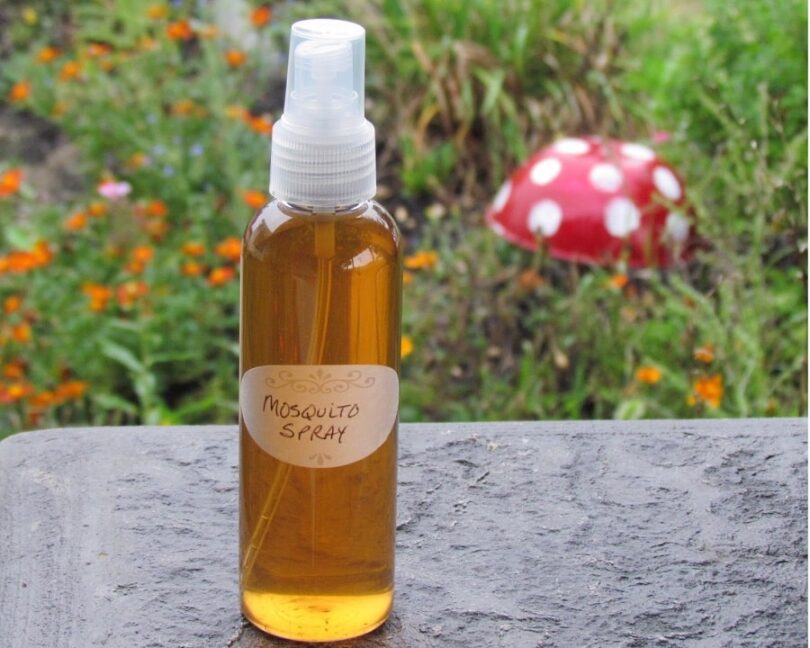Mention DEET in a place that is crowded and you are likely to get a response of various opinions about its health complications and toxicity. Against the background of these uncertainties, maybe the only certain thing is that people – parents or guardians of the young, in particular – have started to minimize their use of repellent products which contain harmful chemicals.
Recently, there have been a handful of mosquito repellents on the market, but most of them tend to be costly, making it impossible for the average person to afford. The good news is; it is possible to make your homemade mosquito repellent at a low cost and with locally available ingredients. The effectiveness of a homemade insect repellent relies on the essential oils, which can be utilized singly or mixed with several other products. Most essential oils are effective against pests. These include catnip, lemon, lemongrass, lavender, citronella, geranium, lavender, eucalyptus, and peppermint.
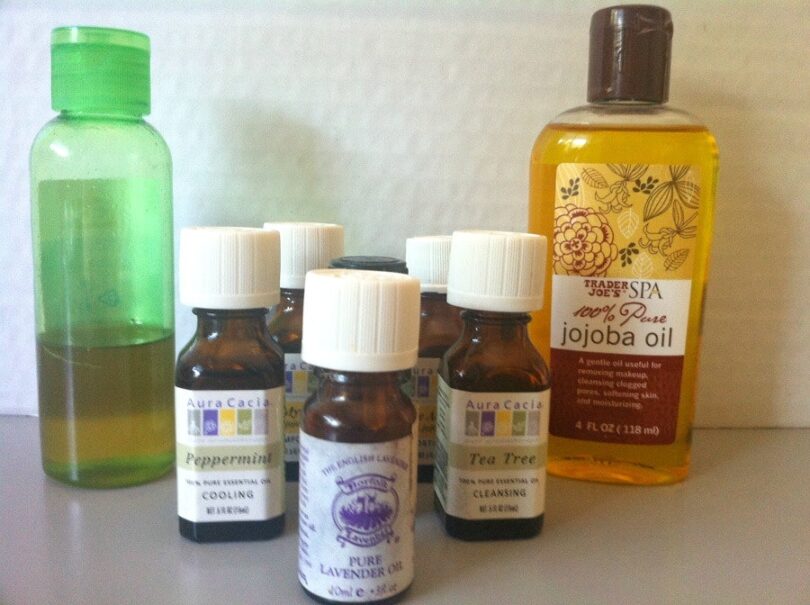
The choice of these oils depends on the kind of smell you prefer. Some individuals go to the extent of mixing and matching oils to come up with an appealing scent.
In case you want to experiment with various oils, you need to be careful so as not to create one that will be unpleasant to you. Some concoctions smell better than others – for example, lavender mixed with peppermint and geranium – while other combinations are just not meant to be.
What Is An Insect Repellent?
An insect repellent, also known as a bug spray, is a substance that is applied to the skin, clothing, or any other surface to discourage insects from climbing or landing on that surface.
The good thing about insect repellents is that they help in preventing and controlling the outbreak of diseases brought about by insects such as Lyme disease, malaria, bubonic plague, dengue fever, and West Nile fever. Animals which commonly act as disease vectors include insects such as a mosquito, fly, flea, and the arachnid tick.
For pests such as mosquitoes, repellents are any products that prevent their approach. The substance can be diverse and varied as coating, film, oil, spray, cream, and any powder that produces the same effect.
In addition to the irritation and unbearable itching caused by these insects swamping every night, they can be a reason for creating and spreading deadly diseases.
Some mosquito repellents are bug killers, but most of them merely discourage the insects and force them to fly away. The effectiveness of the repellents varies depending on the kind of material they are made from.
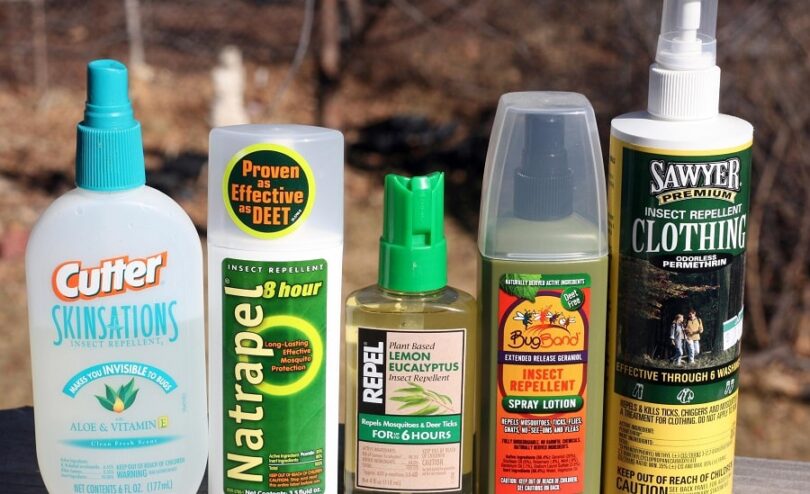
Mostly, the synthetic types are known to last longer than the natural kinds. The side effects of their improper use, as well as their risks, could be fatal in certain situations, hence the importance of storing and using the substances according to the instructions given.
In most cases, the mosquito repellent creams do not cause multitudes of side effects. However, if the substance is a multi-purpose product that is used in keeping off bugs and ants, the level of toxicity increases. For that reason, it is important to read the label of the repellent you buy before you can start using it.
Despite whether you reside in areas far away from stagnant water, waste products, or open garbage, you need to remember that pests, especially mosquitoes, can come from any region. Allergic reactions such as rashes and itching are the initial signs of a mosquito bite.
For that reason, you need to watch out for these signs so you can recognize the problem. Acknowledging the existence of mosquito menace is the first step to controlling their population.
Synthetic And Natural Mosquito Repellents
Mosquitoes suck, literally! And for a mosquito magnet, it is easy to attest to the fact that itchy and bumpy skin can be frustrating. People are often prone to bites as a result of light, scent humidity, and heat.
Different mosquito species – such as the ones causing malaria – prefer sweat and bacteria. Others are attracted to hand odors and carbon dioxide. Despite the variation in their source of attraction, you need to know how to deal with these insects when the need arises.
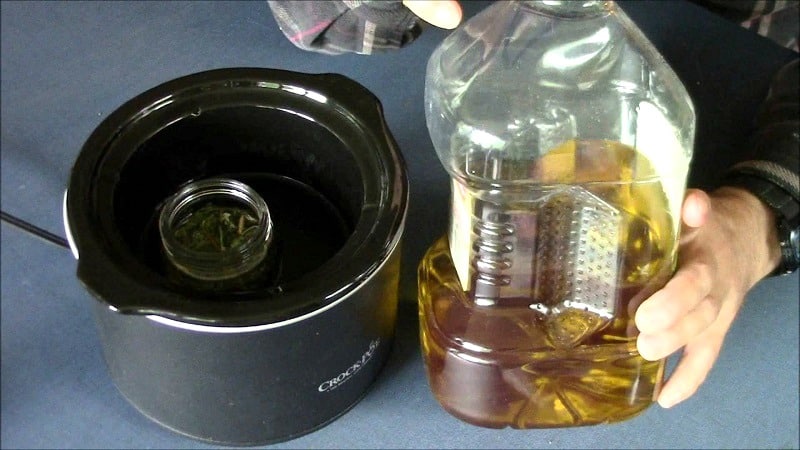
The various kinds of repellent in existence today include the synthetic and the natural repellents.
Here are some of the natural sources that have been used in creating mosquito repellents. The most common ones include:
Thyme oil
Thyme oil is an excellent product that offers protection when it comes to preventing and repelling mosquitoes. In a particular study, hairless mice had five percent thyme oil smeared on their skin, with a ninety-one percent protection rate.

For your homemade brew, put four drops of this oil to each teaspoon of the base substance, such as jojoba or olive oil. For a spray, combine five drops of the thyme with two ounces of water and your product is ready to go!
Greek Catnip Oil
The Nepeta parnassica is a species of the mint family relating to the catnip that can repel mosquitoes. The pink and white flowers tend to grow up to eighteen inches, but it is the oil and extract from the leaves that is most valuable.
A certain study established that oil from this plant could repel mosquitoes successfully for about three hours. Moreover, a group of researchers at Iowa State University determined that catnip was ten times more effective compared to DEET when it came to repelling mosquitoes.
Soybean Oil
Soybean products such as the Bite Blocker for Kids, which is two percent soybean oil, can offer long lasting protection against mosquitoes compared to the citronella-based products. Citronella is a common ingredient used as an insect repellent.

In addition to the soybean oil, you can add some lemongrass oil to the home mixture. This blend has been tested to protect against various mosquito species. It is a powerful and effective mixture which can help keep out the mosquitoes.
Cinnamon oil
This substance is more than just an excellent topper for oatmeal or applesauce. According to research conducted in Taiwan, oil from cinnamon can be used to kill mosquito eggs. Additionally, the oil can be used as a repellent against mosquitoes, especially the Asian tiger.
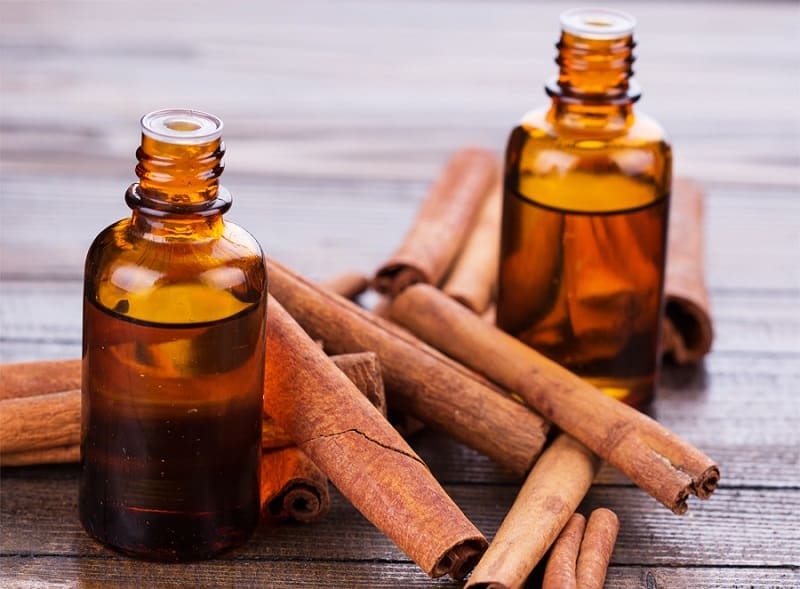
A concentrated amount of cinnamon oil on the skin can be quite irritating, so it is advisable to be careful to avoid this problem with your skin.
To create a diluted one percent solution, mix 24 drops or a quarter teaspoon of oil for each 4 ounces of water. The liquid can be sprayed on your clothing or skin, around your house, and on plants.
Lavender
Lavender flowers that have been crushed can produce oil and fragrance which can be used to repel mosquitoes.
You can grow this plant in indoor planters or outside garden. Crush lavender flowers and smear the oil to areas that are a bit sensitive, such as the arms and ankle. Alternatively, you can drop portions of the oil on a clean fabric and rub it on your skin.

You should also remember that lavender has antiseptic and analgesic qualities. This implies that in addition to repelling mosquitoes, it soothes and calms your skin.
Lemon Eucalyptus Oil
This product is one of the most well-known natural mosquito repellents. The (Center for Disease Control and Prevention) has approved the use of eucalyptus oil as a successful repellent.
A recent research revealed that a combination of thirty-two percent lemon eucalyptus oil offers more than ninety-five percent protection against mosquitoes.

You can make your mixture using a combination of lemon eucalyptus oil and with hazel or sunflower oil.
Other natural mosquito repellents
Other natural sources that can be used as a mosquito repellent include:
- Alpha-terpinene
- Achillea alpina
- Breadfruit
- Carvacrol
- Castor oil (Ricinus communis)
- Cedar oil
- Celery extract
- Oil of cloves
- Garlic (Allium sativum)
- Fennel oil
- Lemongrass oil
- Neem oil
- Peppermint (Mentha x piperita)
- Pennyroyal (Mentha pulegium)
- Rosemary (Rosmarinus officinalis)
- Spanish Flag (Lantana camara)
- Andrographis paniculata
The substances used in synthetic mosquito repellents include the following:
- SS220
- Permethrin
- DEET (N,N-Diethyl-m-toluamide)
- Ethanehexanediol
- Metofluthrin
- Icaridin
- Tricyclodecenyl allyl ether
- Dimethyl carbate
A Step By Step Guide To Your Homemade Repellent
It is easier to keep mosquitoes out with homemade remedies. You don’t need to spray yourself from your toes to head with toxic substances to avoid getting a bite when you are outdoors.
In most cases, mosquitoes are sensitive to specific scents, and if you are aware of what scent to use, you will be able to keep them far away from you.
Basic steps to mosquito control
What you will need
- Catnip
- Marigolds
- Rosemary
- Lemon eucalyptus
- Fabric softener dryer sheets
- Citronella candles
- Plastic spray bottle
Instruction:
- Plant catnip, rosemary, and catnip in your garden or around your home. These plants emit odors which are unpleasant to mosquito helping to keep them away
- Pin different fabric softener dryer sheets on your clothes while outside. These sheets help in repelling mosquitoes
- Rub yourself using eucalyptus oil. This can be obtained from a food retail outlet. Put 5 drops of this oil into a cup of water and put the combination in a spray bottle. Give yourself a few sprays before stepping out. The scent of the eucalyptus oil will keep the mosquitoes away.
- Light citronella candles in and around your home during the night. The scent of the citronella is unpleasant to mosquitoes. Make sure you make a ring of lit candles around the place you are planning to spend your night.
- Eliminate all sources of stagnant water around your home. Mosquitoes use standing water as a breeding ground. A small planter pot that is left outside and contains rainwater can be an excellent breeding ground for mosquitoes and should, therefore, be removed.
- Place mosquito netting around the area you are planning to spend your night. A mosquito netting can be obtained from any camping or sports supply store. These have thousands of holes which are big enough to enable you to see out but too small to allow mosquitoes to fly through.
Tip – When you get bitten by a mosquito, home remedy options can be used to treat the bite. An effect process would be to spray some hair spray on the bite. This technique will help stop the itching.
Herbal insect repellent made from essential oils
What you will need:
- Distilled water
- Empty, clean spray bottle
- Rubbing Alcohol, Witch Hazel or Vodka
- Essential oils
- Rosemary (5 drops)
- Mint (10 drops)
- Lemon (citronella) (10 drops)
- Eucalyptus (5 drops)
- Clove (5 drops)
- Lavender (5 drops)
Instructions:
- Fill the spray bottle 3-quarters with witch hazel or alcohol.
- Add the essential oil drops
- Add distilled water
- Shake before use
Insect repellents made with herbs
What you will need:
- Rubbing Alcohol or Witch Hazel
- Empty, clean jar with lid
- Herbs: Eucalyptus, Mint, Lemon Grass, Lemon Balm, Catnip, and Lavender
Instructions:
- Chop the herbs and place them in the glass jar as full as possible
- Cover the herbs with witch hazel or alcohol, leaving a half to three-quarters space at the top
- Seal the products with a tight lid
- Place the glass jar in a sunny location for about two weeks
- Try to shake the mixture from time to time
- Strain the herbs and transfer the liquid mixture to a spray bottle
- Your repellent is ready for use (shake before use)
You can watch instruction on making natural insect repellent in the video above.
Mosquito repelling bands
Many techniques can be used to make mosquito-repelling bands which can be dipped in your liquid homemade repellent oil, cream, or spray to create a long lasting effect on the mosquitoes.
Wearing a wristband that has been treated in a similar manner can help keep away mosquitoes. A treated woolen wristband can also be helpful in keeping fleas away from your pets.
Tips For Getting Rid of or Avoiding Mosquitoes
Tip 1: Avoid mosquito peak hours
Most mosquitoes feed at dusk and dawn, and some hours into the night. However, some species feed throughout the day.
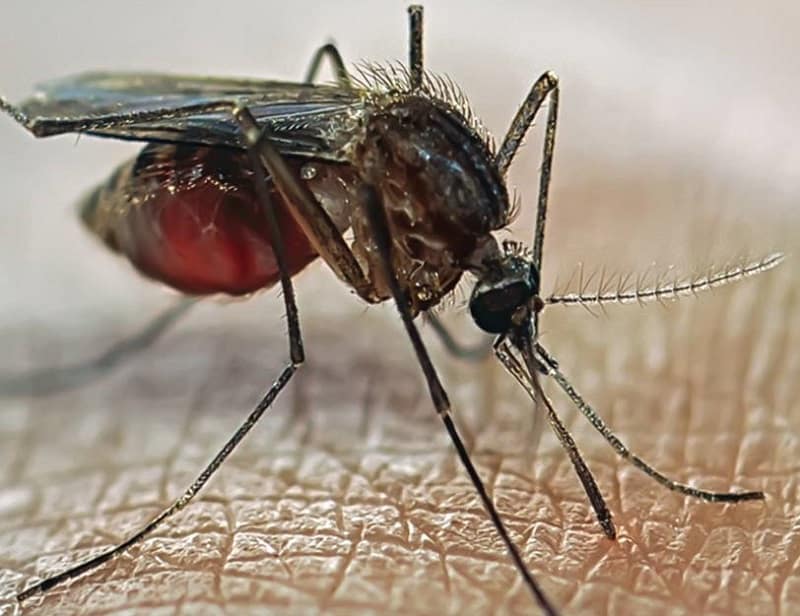
To minimize the risk of being bitten, avoid the mosquito peak feeding times.
Tip 2: Put on light clothing
Dark outfits are more attractive to mosquitoes compared to light clothing. Why? Mosquitoes find it problematic flying even in places with a slight wind; therefore, they remain close to the ground.
While close to the ground, they spot hosts by comparing silhouette to the horizon. Light colors blend in while dark shades stand out.
Tip 3: Treat or remove standing water
Mosquitoes complete three phases of their cycle (egg, larva, and pupa) in water. Stagnant water should be left standing for at least four days to support the life cycle of a mosquito.
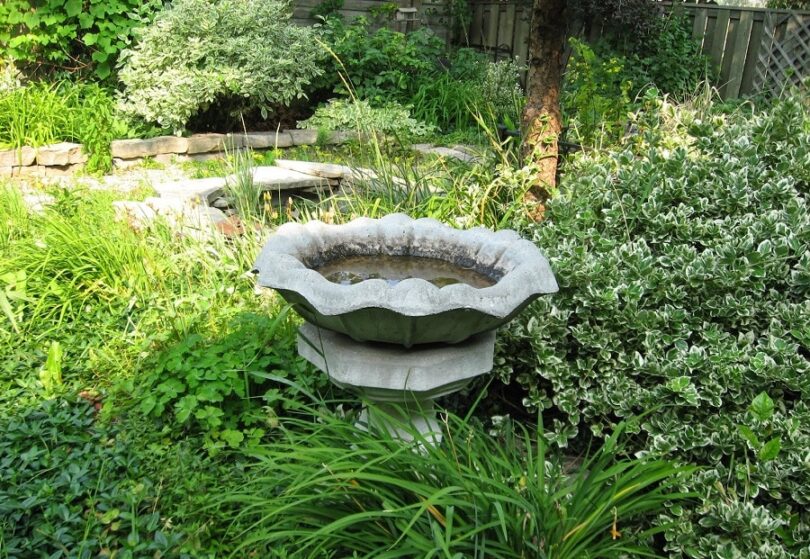
Getting rid of potential mosquito breeding grounds is one of the most efficient processes of reducing their population.
- Treat the water using mosquito dunks. These substances slowly release BT in the water. This component is usually toxic for mosquitoes but safe for humans
- Get rid of objects that could aid water collection
- Place screen with tiny holes over the rain barrels
- Use a fountain or pump to aerate water
- Replace the standing water in bird baths or pools every week
Tip 4: Create a habitat for mosquito predators
Create a conducive environment for natural predators of mosquitoes, so you can reduce or eliminate their population. This can include:
- Frogs
- Bats
- Turtles
- Fish
- Birds
- Dragonflies
Build a bat house, hang bird feeders, invent broken terracotta pots for frog houses, and include some fish pond.
These amazing creatures can help control the mosquito population. And what is exciting, these are all natural ways to keep control mosquitos from breeding and multiplying.
Safety Tips for Using The Mosquito Repellents
There are a number of safety measures you need to consider while using any kind of mosquito repellents, so as to avoid subjecting yourself and those around you to harm.

The most common measures include:
- Keep the products out of children’s reach
- Mosquito repellents should not be used in the vicinity of expectant women
- Do not apply the products on wounds or abrasions
- Repellents are for external use only
- Avoid using on rashes unless they have antiseptic properties
- Do not inhale the mosquito repellents for long hours
- Read instructions before use to prevent any health risks of complications
Final Words
Now that you know how to make mosquito repellent, we hope that it will help you enjoy your outdoor events with the least damage from the bloodsuckers. Although there is a myriad of repellents on the market, picking one that would be effective is the right choice for keeping mosquitoes off.
On the other hand, making your own natural insect repellent would be an ideal option as this would help prevent the side effects of chemicals from the synthetic products. Most synthetic insect repellents are known to be harmful as they cause respiratory illness and interfere with the ecosystem. This is why it is always advisable to use natural methods for preventing and controlling the mosquito population.

